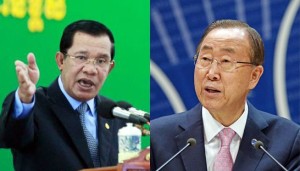Political Paradigm of Pragmatism from the Khmer Youth part 51
This part (51), Mr. Sophan Seng elaborated on good leaders who have always produced more leaders, not more  followers. Theoretically, the concept broadens from family leadership, to community and nation leadership. Western philosophy as well as Cambodian philosophy exclusively boosts the importance of empowering youths and new members of community to be self-reliance and self-accountability. Khmer proverb says “young bamboo shoots are the backbone of future generations” is a testament of this basic human resource leadership.
followers. Theoretically, the concept broadens from family leadership, to community and nation leadership. Western philosophy as well as Cambodian philosophy exclusively boosts the importance of empowering youths and new members of community to be self-reliance and self-accountability. Khmer proverb says “young bamboo shoots are the backbone of future generations” is a testament of this basic human resource leadership.
Practically, at the juncture of Cambodia changes, political landscape has been inherited by hierarchy of upper power abused their own power boundary to advance for personal gains. Subsequently, the lower powers and bottom line citizens are tamed to be submissive and dependent. This type of leadership shall shrink this nation in the long term future.
To develop this nation for long term future sustainable growth, the attitude change is a must for all Cambodian citizens. But to achieve this mission pragmatically, we should consider the Khmer proverb “don’t bent the Srolao tree, don’t instruct the oldies”. So to change attitude of Cambodian people, we should begin with those children (kindergarten or grade 1).


